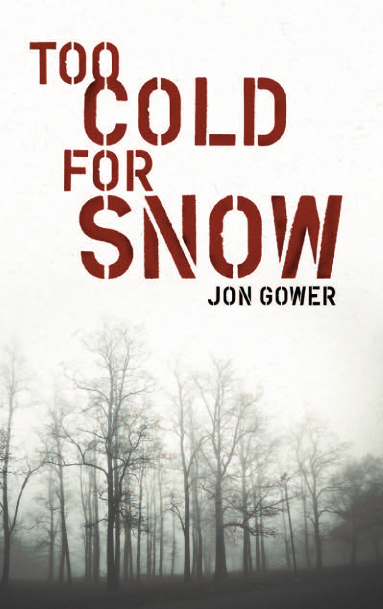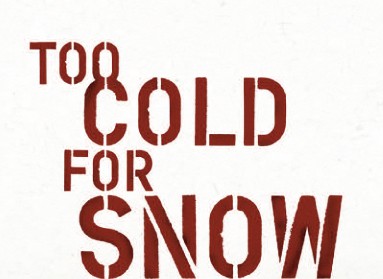Adam Somerset delves into the latest short story collection from Jon Gower and Parthian in his review of Too Cold for Snow.

The cover of Too Cold for Snow carries a recommendation from Richard Ford. It is an appropriate choice; the affinities between the prose of Ford and Gower are strong. Open a page of The Sportswriter at random and the reader sees Ford’s Detroit, ‘a city of lost industrial dreams, floats out around us like a mirage of some sane and glaciated life.’ In ‘TV Land’ Gower sees an unnamed South Wales city ‘of bad teeth, sodden litter, mangled dreams and three skyscrapers.’ Both authors create brave, bravura prose that works through unexpected appositions and rapid shifts in register. Almost every paragraph calls attention to itself. Each asks to be savoured, read aloud even, as its own entity. It is writing that works.
Reading is personal and Too Cold for Snow did not work for the reviewer at New Welsh Review. New Welsh Review is an established, and an establishment, voice and its opinion matters. Artists and creators are deserving of a diversity of critical response. The NWR’s review invites its own response.
The reviewer’s objections are threefold. First, the stories occupy ‘a familiar social and psychological terrain.’ Gower’s stories include gender dysmorphia at the heart of Welsh rugby, a resolution by a group of women to purge their most wretched corner of North Wales of a coven of drug dealers, and serial subterranean cannibalism. Familiar terrain to the NWR’s correspondent these maybe, but to many a reader, I think not.
Secondly, the selection of language means that it is ‘not aimed at posterity.’ E M Forster in Two Cheers for Democracy wrote that the author with half an eye on posterity has half an eyeless on the main task. The diaries of David Gascoyne are filled with his aspirations of writing for eternity. It is true that Gower’s prose hums with an exhilarated now-ness. But then so does that of John dos Passos. Once out of print he is now a Penguin Modern Classic. Posterity is well able to make its own choices.
The review selects a few phrases and extrapolates them as evidence of ‘journalese cliché.’ Journalism is, in the main, thin in cliché and the quality of commentary on the arts would be much enhanced by a greater aspiration to journalism’s clarity and qualities of descriptiveness. If a few of Gower’s word combinations are familiar, then they are out-gunned by battalions of fresh-minted phrases and metaphors.
A couple of stoners are ‘so laid-back they are almost laid out.’ Snores are as loud as if ‘they were worked by bellows.’ Lonely students of theology hope ‘to find God by study, and a wife in some vestry.’ A girlfriend is retained mainly ‘for her trampolining carnal skills.’ The WRU is like an ingrowing toe-nail, ‘old, encrusted and irritating.’
Every arts commentator carries her own implicit aesthetic. The third critique is that the author’s inventiveness is ‘rarely allied to any depth of feeling.’ It is a phrase with a tang of the Lord David Cecil era were critical criteria revolved around whether an artist ‘affirmed the eternal spirit of man.’ Gower is not V S Pritchett. If Too Cold for Snow were music it would be by Frank Zappa, if a canvas it would be hung on a gallery wall alongside Max Beckmann and Otto Dix. These two are artists not to the liking of all. The feeling is in the language itself, not in the content extracted from the language. But then reading is a personal thing.
The fourteen stories have three virtues of the genre. There is the closeness of observation. Gower’s characters know how to snare a snake or age a bird by the abrasion on its wings. There is the narrative thrust that evokes the reader’s sheer basic curiosity to want to know what happened next. The opening sentence of ‘Shearwater Nights’ reads ‘It was a summer of sex and seabirds, arranged around two events that were to shape Kenny’s life forever.’ ‘Mission Creep’ starts with ‘Krink was the only contract killer working out of Gwynedd.’
Too Cold for Snow is a collection of stories that span several years. A simile that evokes South Lebanon has lost currency and would be better replaced. In the visual arts, the line between the display of colour and gaudiness is a fine one. ‘Brash’ as a noun, ‘accipitrine’, ‘conniption’ and ‘cassowary’ had me reaching for the dictionary. The book suffers from the curse of the small publisher. On three occasions tiny one-syllable words have gone missing. The spell-checker is American and prefers a single ‘l’ in ‘fuelled’ and ‘squirrelled’. A car is ‘stationery’. Gower prefers ‘slinked’ twice to the more customary ‘slunk’.
But there is a bravery to Jon Gower’s writing. He takes the part of a songbird who can hear her hunter’s boots crunching in the wood. He senses the aroma of tide wrack in an act of intimacy. Two diffident hands close together and ‘the world contracted to the warmth of her hand and it was more than sufficient.’ It is bold writing and it is true, and boldness in any field of endeavour is to be applauded.
The short story collection, Too Cold for Snow by Jon Gower is out now.
Adam Somerset is an avid contributor to Wales Arts Review.












